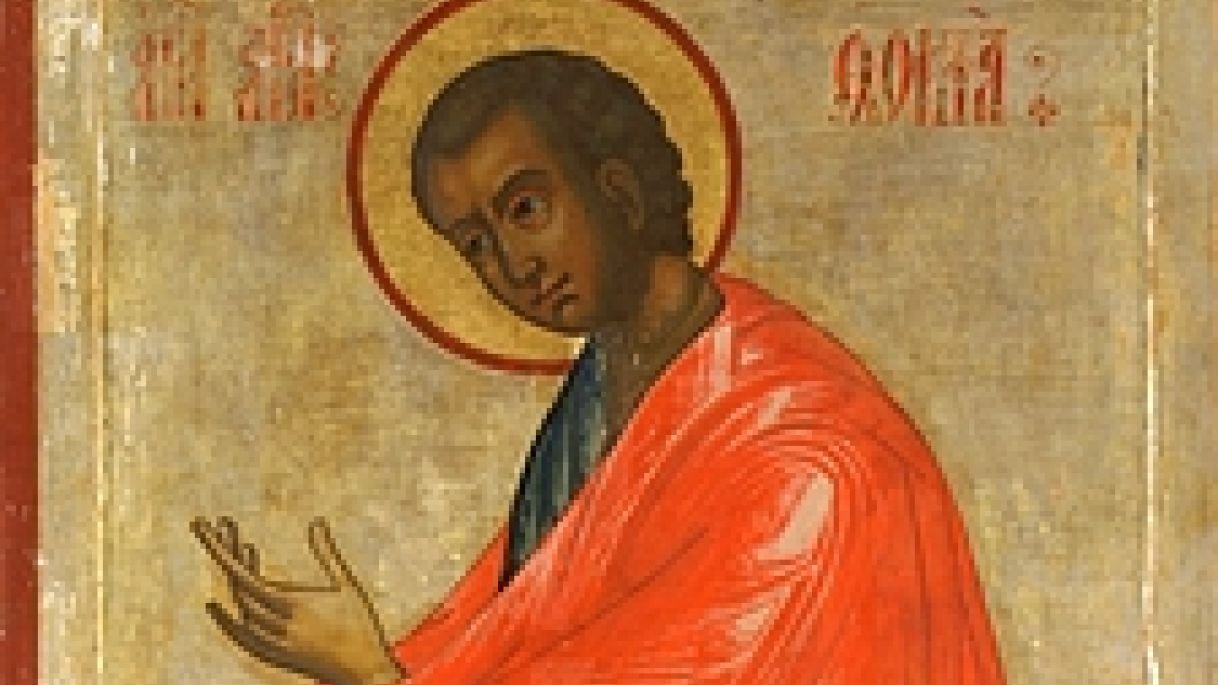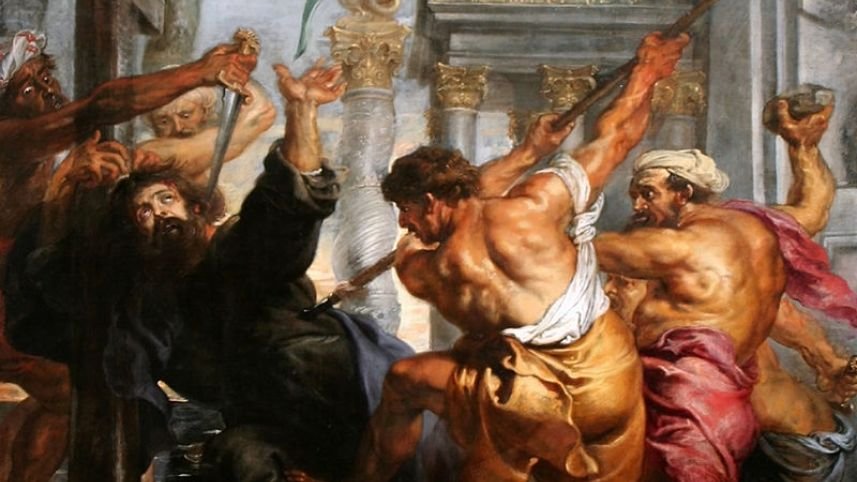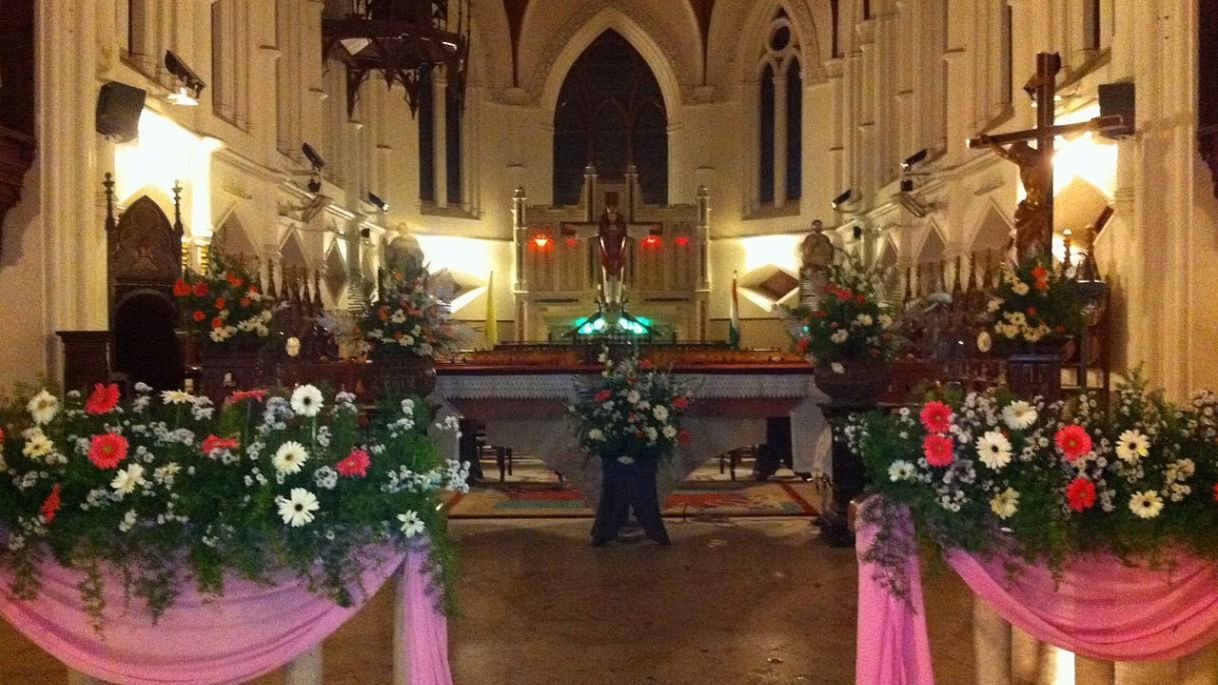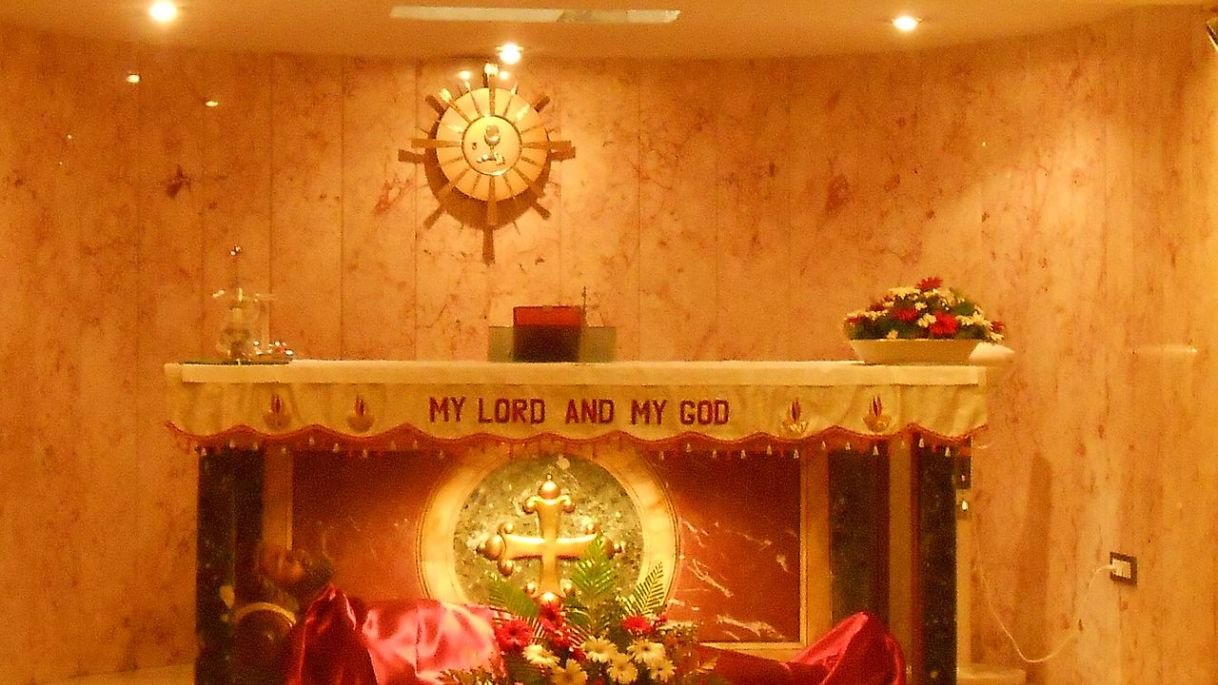
Russian icon of St. Thomas the Apostle form the 18th century.
Tradtional & modern Hinduism has a reputation for tolerance, inclusiveness & assimilation. The goddess Kali brooks no competition, though. 
Martyrdom of St. Thomas, by Peter Paul Rubens, circa 1636
The apostle Thomas, carried the gospel to the northwestern kingdom of Gondophorus. According to the Acts of Thomas, in 52 AD, he sailed, to the southern tip of India, accompanied by Abbanes, a Jewish traveller. Landing in the port of Muziris, present-day Pattanam (Kerala), home, to a thriving Jewish community, (as per the 17th-century Thomma Parvam or Songs of Thomas,) he converted 40 Jews & 3,000 Hindu Brahmins.
In Mylapore, near Chennai, Thomas was challenged by the Hindu priests of Kali. They killed him for insulting their deity & converting Kali followers to Christianity.
In the end, however, the enimity of the Brahmins prevailed. A group of them ordered Thomas to worship the goddess Kali in her sacred grove.
The apostle refused, and as he made the sign of the cross, the grove burst into flames before their eyes.
Angered, they speared him to death with a pointed stake.
Samuel Hugh Moffat, A History of Christianity In Asia, New York, HaperCollins, 1992, pg. 35
His bones brought to Mylapore & buried inside a church he had already built. In the 16th century, the Portuguese built the San Thome Basilica, which was later rebuilt by the British in 1893.
As time went by, the church in South India stagnated, even as Kali increasingly became more established. Kali had yet to come to dominate the Hindu pantheon. That time would come 1,300 years after the death of Thomas.
Why learn about Kali?
Lest Satan should get an advantage of us: for we are not ignorant of his devices.
2 Cor 2:11, KJV
Much of the modern church, has been ignorant of Kali's schemes. This article & those to follow are a brief description of Kali, a history of her workings & her devastating worldwide impact.
For though we walk in the flesh, we do not war after the flesh:
(For the weapons of our warfare are not carnal, but mighty through God
to the pulling down of strong holds;) 5Casting down imaginations, and
every high thing that exalteth itself against the knowledge of God, and
bringing into captivity every thought to the obedience of Christ;
And having in a readiness to revenge all disobedience,
when your obedience is fulfilled.
2 Cor 10:3-6, KJV
We're called to educate ourselves
My people are destroyed for lack of knowledge: because thou hast rejected knowledge,
I will also reject thee, that thou shalt be no priest to me: seeing thou hast forgotten
the law of thy God, I will also forget thy children.
Hos 4:6
We need not have any fear: the Son of Man did not use His Son of God override.
There is no fear in love [dread does not exist]. But perfect (complete, full-grown)
love drives out fear, because fear involves [the expectation of divine] punishment,
so the one who is afraid [of God’s judgment] is not perfected in love [has not grown
into a sufficient understanding of God’s love].
1 John 4:18 (AMP)
Such hope [in God’s promises] never disappoints us, because God’s love
has been abundantly poured out within our hearts through the Holy Spirit
who was given to us.
Romans 5:5 (AMP)
The Kali Series, Article 2.0
Based on Unmasking & Dethroning the goddess Kali by Jeshu Das, Calcutta, India
Further reading
Who is Kali?
Why was the Apostle Thomas murdered?
From Mongols to Mughals: How Kali came into great prominence in the Hindu pantheon
Kalikatta, Calcutta, Kolkata, the city of joy
The Thugees: The world's first Mafia or The world's deadliest secet society?
Sacrificing children to please the gods
The main altar at San Thome Church, a minor Roman Catholic basilica in Santhome, Chennai.
The tomb of the Apostle Thomas at San Thome Church, a minor Roman Catholic basilica in Santhome, Chennai.


